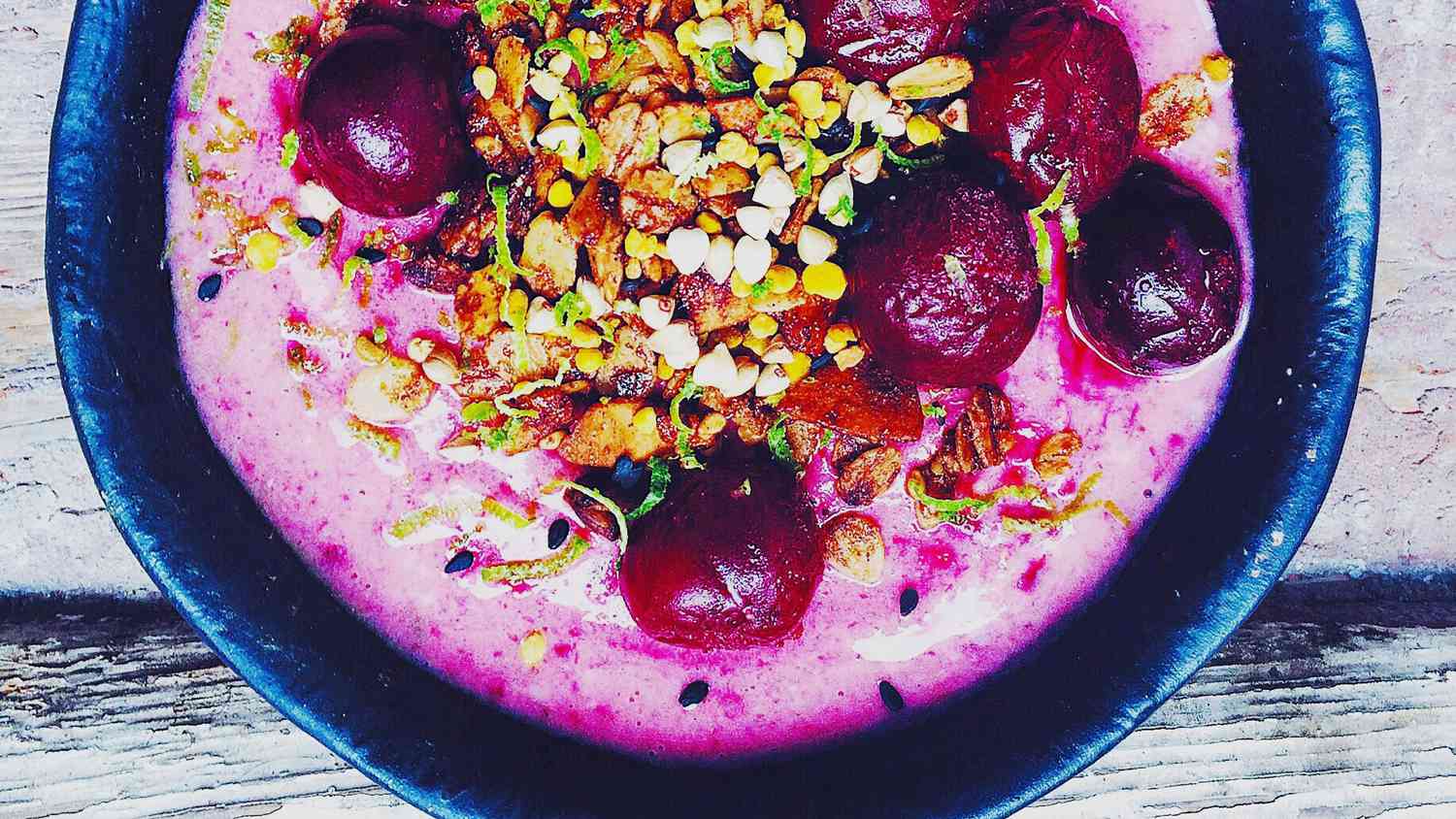
When it comes to food and wellness, nutrition experts tend to agree on one thing: If it sounds too good to be true, it probably is. Any diet or self-proclaimed superfood that claims to act as a cure-all—or lacks science-backed research to support said assertions—should be taken with a large grain of salt.
That being said, a number of ingredients and meal regimes do have legitimate backing from health professionals. One superstar example is the anti-inflammatory diet. Whether you’re short on time, or you’re looking for a simple snack that’ll squeeze more fresh, whole foods into your diet, smoothies are an excellent way to jumpstart your anti-inflammatory meal plan. We spoke to nutrition experts about the best ingredients to mix into your next smoothie to give yourself an extra healthy boost.
Grapes
These super snackers are rich in anti-inflammatories. “Their mix of flavonoids (which are antioxidants) and resveratrol (a plant compound that acts like an antioxidant) combine to fight free radicals and inflammation. Resveratrol shows promise in combating the inflammatory effects of Parkinson’s disease, Alzheimer’s, and other age-related illnesses,” explains Frances Largeman-Roth, RDN.
Cherries
Cherries offer a wealth of inflammation-busting power in one small scarlet package. According to Largeman-Roth, studies have found that sweet and tart cherries help prevent or decrease oxidative stress and inflammation in the body. Both varieties are rich in antioxidants known as polyphenols, including anthocyanins. Extra big benefit: Cherries have also been proven to help you sleep.
Turmeric
This spice is a component of curry powder and serves up a bevy of anti-inflammatory benefits. “Turmeric’s active ingredient, curcumin, has been shown to help with symptoms of irritable bowel syndrome (IBS), stomach ulcers, and Crohn’s disease. It can also help with the pain of post-operative inflammation and rheumatoid arthritis,” Largeman-Roth says.
Chia Seeds
Small and mighty, chia seeds were prized by the Aztecs and Mayans for the long-lasting energy they provide. The seeds contain alpha-linolenic acid, a type of plant-based omega-3 fatty acid that has anti-inflammatory benefits.
Blueberries
These tart-sweet gems are tiny but formidable inflammation fighters. Like cherries, blueberries contain large amounts of anthocyanins, a type of antioxidant that counters inflammation and may help reduce the risk for heart disease and cancer. “These berries show promise in reducing age-related cognitive decline, thanks to their high polyphenol content.”
Dark Leafy Greens
Anthony Boulton/Getty Images
According to Kristy Del Coro, MS, RDN, LDN, dark leafy greens such as kale, spinach, beet greens, and even watercress are packed with antioxidant rich vitamins like Vitamin K, Vitamin A, and Vitamin C. Plus, they’re full of antioxidant rich plant substances called phytochemicals (beta carotene, lutein, and zeaxanthin and a variety of flavonoids) that help fight chronic inflammation.
“You don’t need to make an entirely green smoothie—you can reap benefits even from just adding a handful of fresh or frozen greens into your fruit smoothie,” Del Coro says.
Why Eating More Anti-Inflammatory Foods Is So Important for Your Health
“Science has linked chronic inflammation with the most deadly diseases in the United States: heart disease, cancer, chronic lower respiratory disease, type 2 diabetes, and stroke,” explains Largeman-Roth. “Inflammation is also at the root of other debilitating conditions, like inflammatory bowel disease (IBD), Alzheimer’s, arthritis, and osteoporosis. Autoimmune diseases, like lupus, also have an inflammatory component.”
However, Largeman-Roth notes that inflammation isn’t all bad. Acute (or short-term) inflammation helps to increase blood flow to an injury or infection, speeding up your body’s healing process. Chronic inflammation, which lingers for months or years, is the dangerous form that needs to be reduced for optimal health. Luckily, there are several lifestyle habits that can help to reduce chronic inflammation—eating healthier foods being one of them.
“Choosing more fresh, whole foods instead of processed foods can go a long way toward dialing down your body’s inflammatory response,” Largeman-Roth says.
